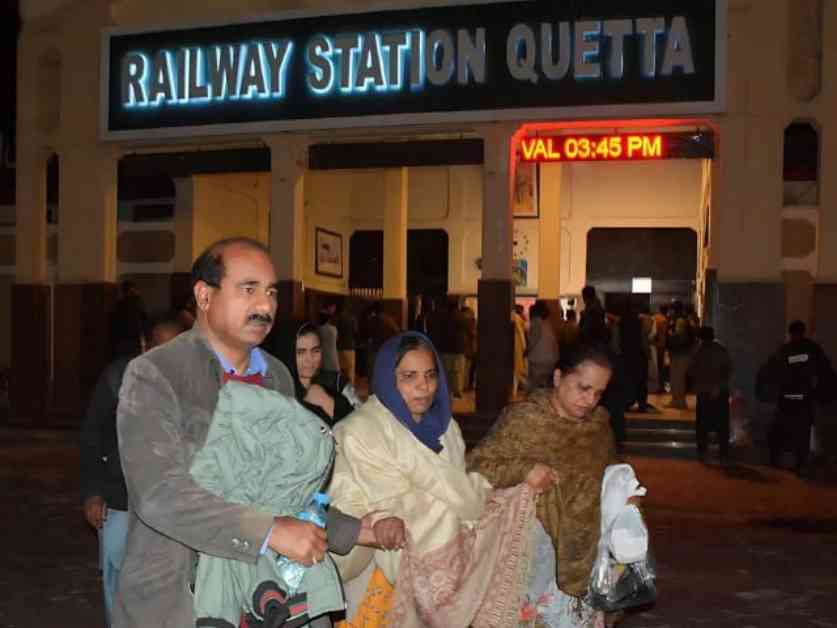Jaffar Express Attack: Tragedy Strikes as Terrorists Target Passengers
In a tragic turn of events, the Jaffar Express, a train ferrying over 400 passengers from Quetta to Peshawar, was ambushed by terrorists in the Bolan district of Balochistan. The attack, which left 21 passengers dead, unfolded in a remote, mountainous area when armed gunmen forced the train to a halt before storming aboard. The assault, claimed by the Baloch Liberation Army (BLA), marked a harrowing ordeal that underscored the persistent threat of terrorism in the region.
The swift response that followed the attack was met with both tragedy and resilience. As security forces engaged in a clearance operation to reclaim the train, four Frontier Corps personnel lost their lives in the line of duty. The Inter-Services Public Relations (ISPR) Director General, Lieutenant General Ahmed Sharif Chaudhry, confirmed that all 33 terrorists involved in the attack were eliminated during the operation. Lt Gen Chaudhry emphasized that the safety of innocent civilians is paramount and vowed to bring the perpetrators to justice.
As the chaos unfolded, hostages – including women and children – were used as human shields by the militants, who resorted to extreme measures to sow terror. The attackers, with connections to handlers in Afghanistan, resorted to barbaric tactics, including suicide bombers among the hostages. The security forces, however, demonstrated remarkable courage and precision in neutralizing the threat, preventing further loss of life.
Tragedy Strikes: Chaos and Heroism Unfold
The attack on the Jaffar Express not only resulted in a significant loss of life but also underscored the grave challenges posed by cross-border terrorism. The militants’ coordinated assault, which included the destruction of railway tracks, reveals the complex nature of security threats facing the region. The incident has sent shockwaves through the community, prompting urgent reassessments of safety protocols and response mechanisms.
In the aftermath of the attack, a wave of misinformation and propaganda has flooded social media platforms, exacerbating tensions and inciting fear among the public. Indian and anti-national elements have seized upon the tragedy to disseminate false narratives and stoke unrest. The insidious campaign of disinformation, relying on outdated images and fabricated reports, aims to sow discord and undermine peace efforts in the region.
Reflection and Resilience: Leaders Condemn the Atrocity
In the wake of the Jaffar Express attack, leaders across the political spectrum have united in condemning the heinous act of violence. President Asif Ali Zardari, PM Shhebaz Sharif, and Interior Minister Mohsin Naqvi have voiced their outrage at the perpetrators’ callous disregard for human life. They have underscored the need for swift justice and unwavering resolve in the face of terror, emphasizing the resilience of the Pakistani people in confronting adversity.
As the nation mourns the loss of innocent lives and grapples with the aftermath of the attack, a renewed sense of solidarity and determination has emerged. The incident, while tragic, has galvanized efforts to bolster security measures and enhance coordination among law enforcement agencies. The resolve to combat terrorism and safeguard the welfare of all citizens remains unwavering, symbolizing the spirit of resilience that defines the Pakistani people in times of crisis.
The Jaffar Express attack serves as a stark reminder of the ongoing threat of terrorism and the need for collective action to ensure the safety and security of all individuals. As the nation reflects on the events that transpired, the courage and sacrifice of those who responded to the crisis stand as a testament to the indomitable spirit of the human will in the face of adversity. The journey toward healing and recovery will be marked by a shared commitment to justice, peace, and unity, guiding the way forward in the aftermath of tragedy.









